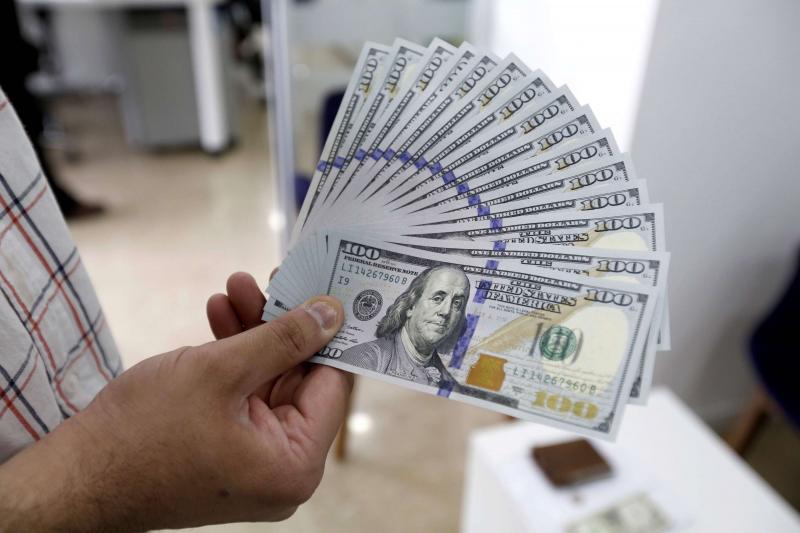Unisolationism: A new word and imagination reboot for Trump’s America
Comedians and unsmiling people alike are having a fine time with US President Donald Trump’s unilateral withdrawal from the Iran nuclear deal. It is the third multilateral agreement from which Trump-led America has reneged in 16 months. The others were the Trans-Pacific Partnership and the Paris Climate Change accord.
Accordingly, everyone is rebooting their imagination and peering at the indistinct outer limits of what was once thought impossible.
Satirist Andy Borowitz raised a smile but not the world’s collective eyebrow when he imagined the biggest Trump pull-out of them all. “Trump is considering pulling the United States out of the United States Constitution,” Borowitz dead-panned. He added that the American president was “scathing in his remarks about the 229-year-old document,” particularly the First Amendment, which guarantees basic liberties such as freedom of speech.
“No one in his right mind would put something like that in a constitution,” Borowitz imagined Trump complaining. “Russia doesn’t have it. North Korea doesn’t have it. All the best countries don’t have it.”
It is a measure of our times that Borowitz’s imaginative leap came across as funny but not entirely weird.
This is why Jean-Claude Juncker, the grumpy elder statesman of European politics, sounded wholly unsurprised even when he expressed “surprise” over the “ferocity” with which Trump’s America is turning its back on multilateral relations.
Always a pragmatist, the European Commission president told Belgium’s Flemish regional parliament that Washington “no longer wants to cooperate with other parts in the world. At this point, we have to replace the United States, which as an international actor has lost vigour, and because of it, in the long term, influence.”
Is this scarcely credible? That Juncker, an old-school politician who has never appeared much like an agent of change, should be recommending the ultimate shake-up? It would have to be a big bang if it is to bring in a new world order. Could it happen? Can the United States be so easily replaced?
Not easily, not quickly and perhaps not at all. However, it is significant the notion is increasingly being voiced and distinctly heard in the babble that broke out after the United States’ withdrawal from the Iran deal. Consider the following:
● French Finance Minister Bruno Le Maire said it was “not acceptable” any longer for the United States to play “economic policeman of the planet.”
● Britain’s Shadow Foreign Secretary Emily Thornberry said the Iran deal announcement confirms “that — as long as Donald Trump remains president — we must get used to a world without American leadership.”
● An unusually public spat between US and German diplomats erupted over the Trump administration’s high-handedness. When Richard Grenell, Trump’s new envoy to Germany, tweeted that “German companies doing business in Iran should wind down operations immediately,” Germany’s former envoy to the United States and the United Kingdom, Wolfgang Ischinger, responded with barely concealed anger: “Ric: my advice, after a long ambassadorial career: explain your own country’s policies and lobby the host country — but never tell the host country what to do, if you want to stay out of trouble. Germans are eager to listen but they will resent instructions.”
Meanwhile, Reza Marashi, an Iranian-American former official of the US State Department, said Europe and the world beyond the United States could pull its weight only if the dollar were no longer the world’s premier reserve currency. BBC Business Editor Simon Jack relayed his impression of a growing realisation in Europe, Asia and Russia that the basket of world currencies needs to hold more than the mighty greenback.
So far, so much hot air? After all, China and Russia have spent nearly a decade dreaming up largely futile strategic plans to unseat the US dollar as the globally dominant currency. Trump may change calculations, as noted by Barry Eichengreen, Berkeley economics professor and expert in global currency systems. Eichengreen, whose new book is on global currencies past, present and future, recently said that until Trump’s election he “attached quite a low probability” to the approaching end of dollar dominance “but I think with Trump’s election we have had to consider more seriously the tail events that we might otherwise have neglected.”
Interestingly, the professor suggested that there were few “big negatives” politically in losing dollar dominance because the United States is “trying to play less of an influential geopolitical role.”
Is it really? Is Trump’s America trying to be less influential or just less consensual and more selfish? Norbert Roettgen, chairman of the German parliament’s Foreign Affairs Committee, is clear that Trump’s Iran announcement is the latest manifestation of “an ‘America First’ foreign policy, which is conducted in a unilateral way.” Francois Delattre, France’s ambassador to the United Nations, coined an English word to describe Trumpian foreign policy — “unisolationism… a mix of unilateralism and isolationism.”
Others have deplored Trump’s determination to prove his word is his bond without caring that the United States’ word is no longer its bond. The consequences, said Roettgen, may be significant.
“Reliability is a prerequisite for doing deals” but Trump has “put the reliability of the United States into question. This will be a liability for the future,” he said.
It would require another imagination reboot.
This article was originally published in The Arab Weekly.







